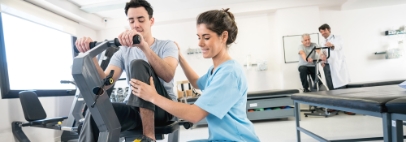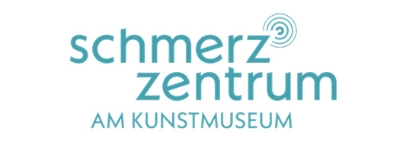Our team of specialists has experienced experts in the fields of pain therapy, manual medicine, rheumatology and immunology.
All inflammatory and degenerative rheumatic diseases as well as various pain syndromes of the musculoskeletal system with a special focus on the spine are treated in the outpatient centre of the Rheumatology and Pain Medicine Clinic.
A key competence of the Rheumatology and Pain Medicine Clinic is the inpatient treatment of acute and chronic pain syndromes of the back, joints and muscles. Another special area of expertise is the inpatient assessment of inflammatory diseases of the joints and spine.
Therapeutic procedures for inflammatory rheumatic diseases
The treatment of rheumatic-inflammatory diseases is customised for each patient after a detailed discussion and explanation of possible risks. It may be necessary to obtain cost approval from the patient's health insurance company for certain measures.
The following drug therapies are frequently used by our doctors:
- Medication that is administered orally (as a tablet or powder)
- Medication administered as an infusion (via the vein) or as an injection under the skin, e.g. biologics such as TNF blockers
- ultrasound-guided injection of medication into inflamed joints, tendon sheaths and/or bursae, e.g. with crystalline glucocorticoids
- Topical medication (applied to the skin)
Therapeutic procedures for pain syndromes (most common procedures)
We treat our patients both on an outpatient and inpatient basis.
The key to the targeted medical treatment of pain syndromes is the precise assessment of the condition, together with the patient, and a thorough clinical examination.
Depending on the diagnosis, various medications can be used to treat pain. Our specialists have broad expertise in the use of pain medication and also advise referring doctors on the use of specific drugs.
Based on the clinical examination and diagnostic classification of the condition, we work on an interdisciplinary basis with our physiotherapy, occupational therapy, spinal surgery, neurology and orthopaedics teams.
We plan physiotherapy treatment carefully, as it is often an important key to successful treatment.


.jpg)



